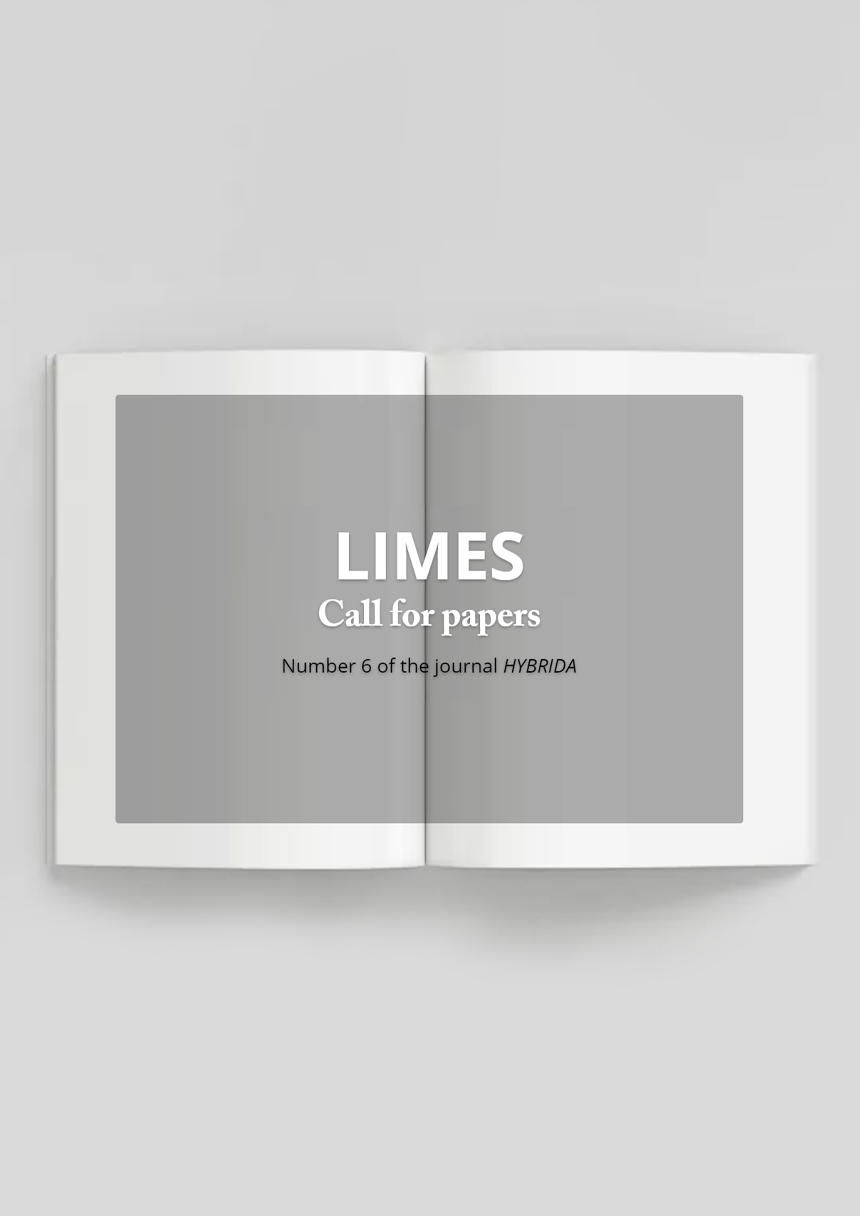
Call for papers:
Journal HYBRIDA nº 6: «LIMES»
An Issue guest edited by: Anna Ledwina & Michał Wanke / University of Opole (Poland).
The deadline for submissions to the Issue: 6 mars 2023.The other issues are receiving proposals throughout the whole year.
https://ojs.uv.es/index.php/Hybrida/about/submissionsFor all the correspondence: hybrida@uv.es
Editor-in-chief:
Domingo Pujante González / Universitat de València (Spain)
https://ojs.uv.es/index.php/Hybrida/index
The Roman concept of «Limes», which clearly refers to the notions of barrier, wall, or actually a limit, marks a real or symbolic separation between two spaces (one here and another there) or between two temporalities (one before and one after), a notion impassable in the domain of knowledge or action. It is also understood as a “civilizational border”. Nowadays, as a tool of political contestation or an instrument of social emancipation, the border also refers to morality. Involving the relationship to otherness, the boundary is above all a geographical and geopolitical concept that conveys several meanings. As Claude Raffestin points out in his work “Elements for a Theory of the Frontier” (1986, p. 4), “The idea of frontier is not univocal […], it may be defined in terms of zonality or linearity, of frontier zone or frontier line, of frontier or boundary; English has kept the distinction, while French hesitates between marche and frange pionnière to express frontier”. Indeed, the border remains associated with oppositions such as the bond and the separation, the same and the other, the rule and the transgression. It becomes a true zone of fusion and friction, both a space of separation and a point of contact.
The border therefore turns out to be a complex concept and one of great potential for the field of cultural hybridizations and migrant identities. It seems that the notion of the limits or borders is now called into question, due to the intersections and trespassings of different limits. New perspectives emerge for reflection originating from this intermixing. It is in this perspective that it would be desirable to see this special, sixth issue of the journal HYBRIDA, seeking the disciplinary diversity of the possible different approaches to the concept.
Our goal will be to demonstrate that the discussion about boundaries enables interdisciplinary openness. We will seek the possibility of synthesis, encompassing all deep questions that attempt to grasp the truly dialogical, evolutionary and creative character of culture. This is why we invite all scholars in humanities and social sciences, but also in political science, law, art and other disciplines, to consider different aspects and also challenges of symbolic boundaries that consider human beings and their cultures, as well as the narratives they produce. For example, we propose to answer the following inquiries: What is the place of the border or limit in artistic or literary production in a broad sense? How does the boundary manifest itself through stories and texts of culture, behavior or social norms? What are the emblematic representations of the boundaries and its overcoming? Does the boundary play a role in the quest for identity?
The journal HYBRIDA is particularly interested in French-speaking cultural contexts or comparisons with them. We will hence, prefer this approach. Nevertheless, for this Special Issue on boundaries, a proportion of “Other views” will be devoted to the texts that will be particularly interesting and coming from this perspective. HYBRIDA is a biannual open-access journal with an international scientific committee that publishes original research in the fields of cultural studies that take into consideration postcolonial, gender and queer perspectives. We accept papers from all disciplines of humanities and social sciences. We favor French as the language of publication, but the texts can also be written in English or Spanish. Papers will undergo the double blind review system.
Deadline for submissions for the «LIMES» special issue: March 6, 2023.
The other sections receive proposals at any time of the year.








